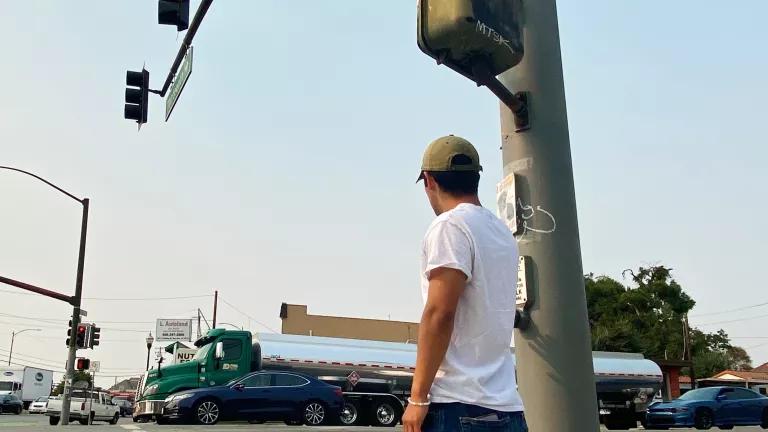Lisa Margonelli of the New America Foundation asked me to speak on a panel yesterday -- the entire thing was recorded and is available here -- along with Jed Kolko of the Public Policy Institute of California and Shin-Pei Tsay of the Carnegie Endowment for International Peace. The topic was "unconventional wisdom" and we were looking at the intersection of energy and transportation policy.
Shin-Pei talked about her group's initiative to shore up the solvency of the struggling transportation program which is putting together an intriguing oil security fee proposal that will be variable depending on the price of oil globally. This is definitely outside of the usual box, and courageous given the cowardly allergy of people like Paul Ryan to revenue-generating proposals to cut our massive budget deficits (Matt Miller as usual has a refreshing take on the Obama and Ryan budgets, neither of which seems serious vis-a-vis the deficit, asking "Is that all there is?" and pointing out that Ryan's proposal would leave a legacy of "decrepit roads, bridges, sewers and airports").
Jed talked about transit-oriented development, and challenged conventional wisdom that it's important to focus on residential projects in that context. He shared a new paper he co-authored, and made a pretty compelling case that evidence shows focussing on locating jobs so they're convenient to transit stops is much more important than an emphasis on housing near transit.
We all talked about how indispensable revenue, and pricing tools, are to both making transit-oriented development and the transportation program writ large work better. Elected officials need to face the facts and put policy in place to ramp up their use.
And, frankly, we need to dramatically improve public transportation in this country. An interesting fact I shared, gleaned from a thoughtful new paper on transit (PDF here), is that, adjusted for inflation, public spending on transit jumped 50 percent between 1991 and 2007. Yet ridership per capita barely moved, and average farebox recovery for transit agencies (i.e., the net revenue from fares after accounting for capital, operating and maintenance costs) actually dropped from 37 to 33 percent. But -- and this is the point of the paper -- Germany had quite the opposite experience in that time period, and that offers a number of lessons for us.
Which means we should remember that while America's exceptional we can learn from transportation programs elsewhere. And unconventional thinking like that can help us navigate out of this insolvency crisis.



